Twenty-Five Most Influential Books
When Wasafiri turned 25 in 2009, 25 authors were asked to select an influential book from, or upon, the last 25 years. In addition, Wasafiri asked its own Editorial Team and Board what their suggestions might be. Melanie Abrahams: Orange Laughter by Leone Ross Sharmilla Beezmohun: Daughters of Africa by Margaret Busby Ruth Borthwick: The Buddha of Suburbia by Hanif Kureishi Richard Dyer: Spillage of Mercury by Neil Rollinson Bernardine Evaristo: Staying Power: The History of Black People in Britain by Peter Fryer Robert Fraser: Dr Johnson and Mr Savage by Richard Holmes Maggie Gee: Disgrace by J M Coetzee Rachel Gilmour: Look We Have Coming to Dover! by Daljit Nagra Aamer Hussein: Meatless Days by Sara Suleri Lyn Innes: Paradise by Abdulrazak Gurnah Louis James: Omeros by Derek Walcott Nisha Jones: Foe by J M Coetzee Stephanie Jones: My Place by Sally Morgan Tabish Khair: The Satanic Verses by Salman Rushdie Jean Khalfa: La Douleur by Marguerite Duras, L'Esclave vieil homme et le molosse by Patrick Chamoiseau and Patagonian Hare by Claude Lanzmann Gary Mckeone: Lost Lives: The Stories of the Men, Women and Children Who Lost Their Lives as a Result of the Northern Ireland Troubles edited by David McKittrick, Seamus Kelter, Brian Feeny and Chris Thornton Nana Yaa: Mensah Texaco by Patrick Chamoiseau Susheila Nasta: Mr Potter by Jamaica Kincaid Alastair Niven: The Ground Beneath Her Feet by Salman Rushdie Teresa Palmiero: The Glass Palace by Amitav Ghosh Roger Robinson: Sula by Toni Morrison Minoli Salgado: Anil's Ghost by Michael Ondaatje Fiona Sampson: New and Collected Poems 1931-2001 by Czeslaw Milosz Sukhdev Sandhu: The Private Life of Chairman Mao by Dr Li Zhisui Hirsh Sawhney: River of Fire by Qurratulain Hyder -- 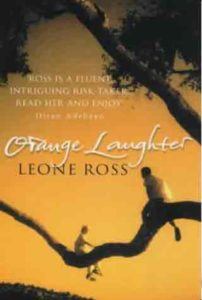 Melanie Abrahams Orange Laughter (2000) by Leone Ross As I walk down Oxford Street, I’m reminded of Orange Laughter as I spot ‘shop closed’ signage on Borders. The flagship store used to host literary readings including one for Orange Laughter, and up-and-coming talent was welcomed. Before square footage and best-selling authors became the thing, 150+ people would come out to discover and enjoy new writers. In the book, Leone Ross’s words bubble, sing and pique to bursting. It covers ambitious terrain — North Carolina in the 60s, New York in the late 90s and four main characters of different ages, races and sensibilities. The audacious and fruity language of the Tony character, combined with descriptions of mental illness and destitution (he lived in the New York subway) are particularly arresting. I recall critics saying the novel was ‘too’ ambitious, cogitating on whether a British writer could write accurately about America, whether women authors could write from a male perspective and the theme of mental illness. My response was different. I felt the playfulness was its strength, and the breadth and range admirable. Books I’ve found to be most influential have been written over 25 years ago, but considering the period of 1984–2009, I’ve valued many anthologies, verse-novels, recordings and novels, including Patrick Chamoiseau’s School Days, Bernardine Evaristo’s Lara, Lawrence Scott’s Witchbroom, and Linton Kwesi Johnson’s ‘Tings An’ Times’. Not forgetting the wildly successful London-based multi-cultural romps. However, Orange Laughter marked me for life, and marked new territory, in that it bellowed risk and innovation, was ‘mashup’ before the term became cool, and is a teasing and eloquent novel beautifully told.
Melanie Abrahams Orange Laughter (2000) by Leone Ross As I walk down Oxford Street, I’m reminded of Orange Laughter as I spot ‘shop closed’ signage on Borders. The flagship store used to host literary readings including one for Orange Laughter, and up-and-coming talent was welcomed. Before square footage and best-selling authors became the thing, 150+ people would come out to discover and enjoy new writers. In the book, Leone Ross’s words bubble, sing and pique to bursting. It covers ambitious terrain — North Carolina in the 60s, New York in the late 90s and four main characters of different ages, races and sensibilities. The audacious and fruity language of the Tony character, combined with descriptions of mental illness and destitution (he lived in the New York subway) are particularly arresting. I recall critics saying the novel was ‘too’ ambitious, cogitating on whether a British writer could write accurately about America, whether women authors could write from a male perspective and the theme of mental illness. My response was different. I felt the playfulness was its strength, and the breadth and range admirable. Books I’ve found to be most influential have been written over 25 years ago, but considering the period of 1984–2009, I’ve valued many anthologies, verse-novels, recordings and novels, including Patrick Chamoiseau’s School Days, Bernardine Evaristo’s Lara, Lawrence Scott’s Witchbroom, and Linton Kwesi Johnson’s ‘Tings An’ Times’. Not forgetting the wildly successful London-based multi-cultural romps. However, Orange Laughter marked me for life, and marked new territory, in that it bellowed risk and innovation, was ‘mashup’ before the term became cool, and is a teasing and eloquent novel beautifully told. 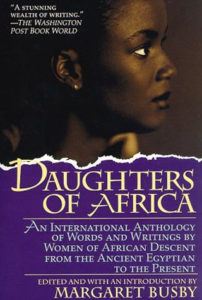 Sharmilla Beezmohun Daughters of Africa (1992) edited by Margaret Busby Daughters of Africa, edited by Margaret Busby and published in 1992, is a veritable treasure trove. The subtitle of the collection is ‘An International Anthology of Words and Writing by Women of African Descent from the Ancient Egyptian to the Present’. And it delivers all that and more. From traditional African poems which are so old they cannot be dated, through nineteenth century works by women from Africa, the Caribbean and the USA and onto a twentieth-century journey that covers these areas and now also South America, Europe, Turkey and Russia, this book challenges any preconceptions of how long women have been using words creatively. Moreover, the collection includes a range of genres from autobiography to letters, from science fiction to journalism, from oral tradition to political speeches. For me, Daughters of Africa was an inspiring eye-opener, introducing me to names I had never heard before at a time when there were only a few women of African descent appearing on bookshop shelves. This anthology was and is the ultimate reference guide to the writing of ‘daughters of Africa’; more importantly, it is a book of endless discovery and surprises.
Sharmilla Beezmohun Daughters of Africa (1992) edited by Margaret Busby Daughters of Africa, edited by Margaret Busby and published in 1992, is a veritable treasure trove. The subtitle of the collection is ‘An International Anthology of Words and Writing by Women of African Descent from the Ancient Egyptian to the Present’. And it delivers all that and more. From traditional African poems which are so old they cannot be dated, through nineteenth century works by women from Africa, the Caribbean and the USA and onto a twentieth-century journey that covers these areas and now also South America, Europe, Turkey and Russia, this book challenges any preconceptions of how long women have been using words creatively. Moreover, the collection includes a range of genres from autobiography to letters, from science fiction to journalism, from oral tradition to political speeches. For me, Daughters of Africa was an inspiring eye-opener, introducing me to names I had never heard before at a time when there were only a few women of African descent appearing on bookshop shelves. This anthology was and is the ultimate reference guide to the writing of ‘daughters of Africa’; more importantly, it is a book of endless discovery and surprises. 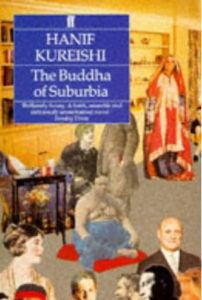 Ruth Borthwick The Buddha of Suburbia (1990) by Hanif Kureishi ‘My name is Karim Amir, and I am an Englishman born and bred, almost.’ From the opening line Kureishi’s novel is a direct challenge to Enoch Powell’s speech of November 1968 in which he states that an Asian person did not become English by being born in England. Published in the shadow of Rushdie’s fatwah, Buddha, Kureishi’s comic debut novel, looks back at the period 1964–1979 as years of relative freedom and progress in England and charts Karim’s coming of age and his journey from Bromley, ‘a town so suburban as to be exotic’, to the heart of London’s artistic community. Buddha coupled the exotic and the mundane, and described many different ways of being English. And always with a brilliant soundtrack.
Ruth Borthwick The Buddha of Suburbia (1990) by Hanif Kureishi ‘My name is Karim Amir, and I am an Englishman born and bred, almost.’ From the opening line Kureishi’s novel is a direct challenge to Enoch Powell’s speech of November 1968 in which he states that an Asian person did not become English by being born in England. Published in the shadow of Rushdie’s fatwah, Buddha, Kureishi’s comic debut novel, looks back at the period 1964–1979 as years of relative freedom and progress in England and charts Karim’s coming of age and his journey from Bromley, ‘a town so suburban as to be exotic’, to the heart of London’s artistic community. Buddha coupled the exotic and the mundane, and described many different ways of being English. And always with a brilliant soundtrack. 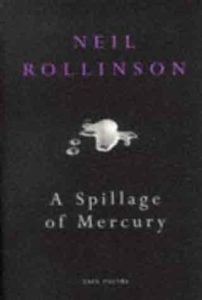 Richard Dyer Spillage of Mercury (1996) by Neil Rollinson I return again and again to Rollinson's debut collection. He manages to conflate a flawless technical command of the art of poetry with original insights about the significance of the everyday and the seemingly ordinary — spare ribs, dying goldfish, sex, shopping, scampi and running for a bus. This is truly the poets’ art, not to display their erudite and obscurantist knowledge of the history of poetry through excessive and florid displays of language, but to employ the simplest of vocabularies to express the vast complexities of the human condition and thus make the ordinary extraordinary and the unnoticed incidents of life profound.
Richard Dyer Spillage of Mercury (1996) by Neil Rollinson I return again and again to Rollinson's debut collection. He manages to conflate a flawless technical command of the art of poetry with original insights about the significance of the everyday and the seemingly ordinary — spare ribs, dying goldfish, sex, shopping, scampi and running for a bus. This is truly the poets’ art, not to display their erudite and obscurantist knowledge of the history of poetry through excessive and florid displays of language, but to employ the simplest of vocabularies to express the vast complexities of the human condition and thus make the ordinary extraordinary and the unnoticed incidents of life profound. 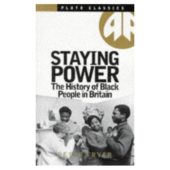 Bernardine Evaristo Staying Power: The History of Black People in Britain (1984) by Peter Fryer Staying Power remains the definitive guide to Britain’s Black history. It told the world that Black and Asian roots went deep into British history because our presence on these shores span nearly 2,000 years. For a country steeped in the myth of its own racial purity, this was a bit of a culture shock. A History of Blacks in Britain by Edward Scobie was the first book of this kind, but its scope was less ambitious (Johnson Publishing, 1972). It was Staying Power, both scholarly and accessible, that expanded our understanding of what it means to be British.
Bernardine Evaristo Staying Power: The History of Black People in Britain (1984) by Peter Fryer Staying Power remains the definitive guide to Britain’s Black history. It told the world that Black and Asian roots went deep into British history because our presence on these shores span nearly 2,000 years. For a country steeped in the myth of its own racial purity, this was a bit of a culture shock. A History of Blacks in Britain by Edward Scobie was the first book of this kind, but its scope was less ambitious (Johnson Publishing, 1972). It was Staying Power, both scholarly and accessible, that expanded our understanding of what it means to be British. 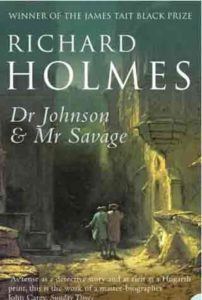 Robert Fraser Dr Johnson and Mr Savage (1993) by Richard Holmes In 1984, the year in which Wasafiri started publication, I wrote a play about Dr Samuel Johnson called God’s Good Englishman, which toured the provinces for several weeks before dying a premature death in Epsom. Ten years after my play, Richard Holmes published his book Dr Johnson and Mr Savage, a double biography that investigated the relationship between Johnson and Richard Savage, a derelict might-have-been who paced the streets with him at nights during his early years in London, long before he had a house, a name or a reputation. This was life-writing at its best. It also possessed the enthralment of fiction and strongly recalled, in its parable of human vicissitude, Saul Bellow’s better known novel of 1975, Humboldt’s Gift, in which a celebrated writer is haunted by the presence of a friend who, without his luck or charm, is reduced to raiding dustbins. Holmes’s book is my choice. Why? Because it tells a tale that all of us can recognise, and because each of us, in his or her own way, is both success and failure, and can therefore empathise with both sides of this human equation. Like Bellow’s novel, it raises a question that preoccupies many of us: just who in this life can be accounted one of the fortunate, and who among the unfortunate? Despite superficial appearances, all of us change positions between these two extremes constantly or, perhaps more accurately, at any given stage our place on the spectrum of blessedness depends on the light in which we are viewed, by ourselves or by others. I could draw parallels with my own life, and with writers I have known, but will not. The Johnsonian parallel is far more potent than any anecdote I might be tempted to recount. As William Makepeace Thackeray once asked in his most famous work of the imagination – though not altogether of the imagination – Vanity Fair: ‘Which of us has his desire or, having it, is satisfied?’
Robert Fraser Dr Johnson and Mr Savage (1993) by Richard Holmes In 1984, the year in which Wasafiri started publication, I wrote a play about Dr Samuel Johnson called God’s Good Englishman, which toured the provinces for several weeks before dying a premature death in Epsom. Ten years after my play, Richard Holmes published his book Dr Johnson and Mr Savage, a double biography that investigated the relationship between Johnson and Richard Savage, a derelict might-have-been who paced the streets with him at nights during his early years in London, long before he had a house, a name or a reputation. This was life-writing at its best. It also possessed the enthralment of fiction and strongly recalled, in its parable of human vicissitude, Saul Bellow’s better known novel of 1975, Humboldt’s Gift, in which a celebrated writer is haunted by the presence of a friend who, without his luck or charm, is reduced to raiding dustbins. Holmes’s book is my choice. Why? Because it tells a tale that all of us can recognise, and because each of us, in his or her own way, is both success and failure, and can therefore empathise with both sides of this human equation. Like Bellow’s novel, it raises a question that preoccupies many of us: just who in this life can be accounted one of the fortunate, and who among the unfortunate? Despite superficial appearances, all of us change positions between these two extremes constantly or, perhaps more accurately, at any given stage our place on the spectrum of blessedness depends on the light in which we are viewed, by ourselves or by others. I could draw parallels with my own life, and with writers I have known, but will not. The Johnsonian parallel is far more potent than any anecdote I might be tempted to recount. As William Makepeace Thackeray once asked in his most famous work of the imagination – though not altogether of the imagination – Vanity Fair: ‘Which of us has his desire or, having it, is satisfied?’ 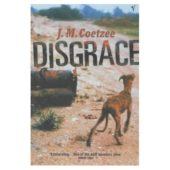 Maggie Gee Disgrace by (1999) JM Coetzee This lean, cool, brilliant book cuts to the heart of South Africa’s past and future and of relations between colonist and colonised everywhere. JM Coetzee’s central character, David Lurie, begins as a touchy ageing academic who abuses his position by having a relationship with a mixed-race undergraduate. The narrative slowly strips everything away from him. In Coetzee’s depressive but commanding vision, the only redemption for white people in the Eastern Cape is to yield power utterly; to become as powerless as the colonised once were and do the worse-than-menial jobs which were once done for them. Their reward, if they are lucky? Survival at subsistence level — the same reward they once offered to the indigenous peoples of South Africa. Morally relentless, pared to the bone, showing the rape of Lurie’s daughter by black intruders as a political and genetic weapon in a wider war, this great book presses inexorably towards its ending, but then there is a kind of surprise. As David Lurie, like King Lear, learns from his daughter to manage with nothing, he earns the compassion that Coetzee finally affords to all of us dying animals, human and non-human.
Maggie Gee Disgrace by (1999) JM Coetzee This lean, cool, brilliant book cuts to the heart of South Africa’s past and future and of relations between colonist and colonised everywhere. JM Coetzee’s central character, David Lurie, begins as a touchy ageing academic who abuses his position by having a relationship with a mixed-race undergraduate. The narrative slowly strips everything away from him. In Coetzee’s depressive but commanding vision, the only redemption for white people in the Eastern Cape is to yield power utterly; to become as powerless as the colonised once were and do the worse-than-menial jobs which were once done for them. Their reward, if they are lucky? Survival at subsistence level — the same reward they once offered to the indigenous peoples of South Africa. Morally relentless, pared to the bone, showing the rape of Lurie’s daughter by black intruders as a political and genetic weapon in a wider war, this great book presses inexorably towards its ending, but then there is a kind of surprise. As David Lurie, like King Lear, learns from his daughter to manage with nothing, he earns the compassion that Coetzee finally affords to all of us dying animals, human and non-human. 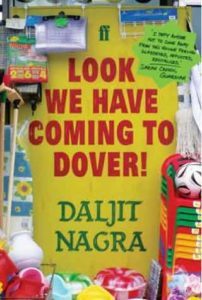 Rachel Gilmour Look We Have Coming to Dover! (2007)by Daljit Nagra Given the wealth of marvellous books on this list, which have already reached 'classic' status it seems risky to choose something very recent, but that is what I shall do: Daljit Nagra's Look We Have Coming to Dover! Nagra is a poet's poet, and the critical and popular success of this debut collection is astonishing at a time when we have become used to rolling our eyes and saying that 'nobody reads poetry any more.' Punjabi and British in equal measure, the poems address questions of nationality and belonging, love and loneliness, poetic influence and poetic obligation. They are complex and allusive, sometimes laugh-out-loud funny, and as bleak as they are beautiful. Nagra is also, probably quite obviously, my writer to watch for the next twenty five years.
Rachel Gilmour Look We Have Coming to Dover! (2007)by Daljit Nagra Given the wealth of marvellous books on this list, which have already reached 'classic' status it seems risky to choose something very recent, but that is what I shall do: Daljit Nagra's Look We Have Coming to Dover! Nagra is a poet's poet, and the critical and popular success of this debut collection is astonishing at a time when we have become used to rolling our eyes and saying that 'nobody reads poetry any more.' Punjabi and British in equal measure, the poems address questions of nationality and belonging, love and loneliness, poetic influence and poetic obligation. They are complex and allusive, sometimes laugh-out-loud funny, and as bleak as they are beautiful. Nagra is also, probably quite obviously, my writer to watch for the next twenty five years. 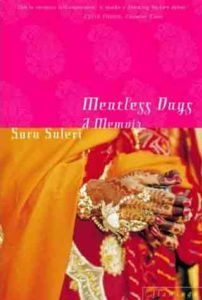 Aamer Hussein Meatless Days (1991) by Sara Suleri In the summer of ‘89, a group of Pakistani friends began to talk about a book by Sara Suleri, an academic teaching English at Yale. It had the evocative title of Meatless Days. Who wants to read a memoir? I thought and possibly imagined that it was merely the novelty of a Pakistani of our generation publishing in America that made them recommend her. (Remember in those days, Bapsi Sidhwa was the only renowned Pakistani writer.) ‘It is her prose!’ a friend remarked and when I acquired a copy to read at Christmas, I discovered she was right. Suleri’s language sings; languages – Urdu and English – reflect each other magically in her texts. To call this book, which deliberately issues chronologies, documentation, even confession, a memoir is perhaps fallacious. Elegiac short stories drawn from life? More like it, but often the chapters are like prose poems. I once remarked to Sara that it was about memories and mothers. ‘Forgetting, more like it’, she remarked. It is, in fact, about belonging and writing, parents, loss and – yes – Pakistan. Living with pain and grace. And an oblique portrait of a generation. Ours. At its core are two elegies for Suleri’s dead – mother, sister – that rival the Urdu poetry she loves (and has since translated). It was a hard act to follow. Years later, she did. Boys will be Boys (2003) is, perhaps, even better. But Meatless Days claims a unique and unassailable place in Pakistani literature. Two writers I’m watching with great interest: American-educated Bina Shah has published 4 works of fiction in Pakistan and another in Italy and Spain (her best,Children of Sindh, is also being translated). She’s as yet unknown in Britain, which is our loss. Venice-born, Dubai bred half-Iranian Andre Naffis is just emerging as a poet and fabulist, charting the deserts that are his imaginative landscape.
Aamer Hussein Meatless Days (1991) by Sara Suleri In the summer of ‘89, a group of Pakistani friends began to talk about a book by Sara Suleri, an academic teaching English at Yale. It had the evocative title of Meatless Days. Who wants to read a memoir? I thought and possibly imagined that it was merely the novelty of a Pakistani of our generation publishing in America that made them recommend her. (Remember in those days, Bapsi Sidhwa was the only renowned Pakistani writer.) ‘It is her prose!’ a friend remarked and when I acquired a copy to read at Christmas, I discovered she was right. Suleri’s language sings; languages – Urdu and English – reflect each other magically in her texts. To call this book, which deliberately issues chronologies, documentation, even confession, a memoir is perhaps fallacious. Elegiac short stories drawn from life? More like it, but often the chapters are like prose poems. I once remarked to Sara that it was about memories and mothers. ‘Forgetting, more like it’, she remarked. It is, in fact, about belonging and writing, parents, loss and – yes – Pakistan. Living with pain and grace. And an oblique portrait of a generation. Ours. At its core are two elegies for Suleri’s dead – mother, sister – that rival the Urdu poetry she loves (and has since translated). It was a hard act to follow. Years later, she did. Boys will be Boys (2003) is, perhaps, even better. But Meatless Days claims a unique and unassailable place in Pakistani literature. Two writers I’m watching with great interest: American-educated Bina Shah has published 4 works of fiction in Pakistan and another in Italy and Spain (her best,Children of Sindh, is also being translated). She’s as yet unknown in Britain, which is our loss. Venice-born, Dubai bred half-Iranian Andre Naffis is just emerging as a poet and fabulist, charting the deserts that are his imaginative landscape. 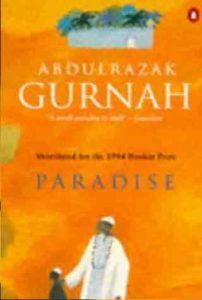 Lyn Innes Paradise (1994) by Abdulrazak Gurnah ‘The boy first. His name was Yusuf, and he left his home suddenly during his twelfth year'. So begins Abdulrazak Gurnah's Paradise, a novel which revisits and reclaims territory and peoples described and dismissed by Conrad and Naipaul. Using as a frame the Koranic account of Yusuf who was sold into bondage, this is a story of enthralment, which also enthrals the reader as she or he discovers Africa through Yusuf's eyes. There are magical descriptions of mountains and lakes, and vivid evocations of the terrains and villages encountered on a long journey into the interior. But we also experience the accommodations made by those who are relatively powerless and the struggle for psychic survival in a world defined by the rich and powerful. Told in limpid and eloquent prose, this is a brilliant portrayal of a complex and varied society just before the full impact of European colonisation. For the writer who will (continue to) have future impact, I suggest Jackie Kay, in part because she is such a brilliant and original writer in a variety of genres — fiction, poetry, and drama.
Lyn Innes Paradise (1994) by Abdulrazak Gurnah ‘The boy first. His name was Yusuf, and he left his home suddenly during his twelfth year'. So begins Abdulrazak Gurnah's Paradise, a novel which revisits and reclaims territory and peoples described and dismissed by Conrad and Naipaul. Using as a frame the Koranic account of Yusuf who was sold into bondage, this is a story of enthralment, which also enthrals the reader as she or he discovers Africa through Yusuf's eyes. There are magical descriptions of mountains and lakes, and vivid evocations of the terrains and villages encountered on a long journey into the interior. But we also experience the accommodations made by those who are relatively powerless and the struggle for psychic survival in a world defined by the rich and powerful. Told in limpid and eloquent prose, this is a brilliant portrayal of a complex and varied society just before the full impact of European colonisation. For the writer who will (continue to) have future impact, I suggest Jackie Kay, in part because she is such a brilliant and original writer in a variety of genres — fiction, poetry, and drama. 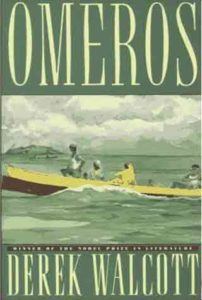 Louis James Omeros (1990) by Derek Walcott Omeros brought Derek Walcott to worldwide recognition. A poem of over 7,000 lines,it embodies a dazzling complexity of narratives and perspectives. The title evoked ‘Homer’ (the Odyssey, voyaging, the epic history of civilisations), essential humanity (‘homo sapiens’) and mankind’s involvement with its environment – ‘mer’ (sea), ‘mère’ (mother),’os’ (human bone, island coral) – all central themes. The villagers’ classical names, natural in the Caribbean, implied both the heroic essence of the folk, and the folk origins of classical myth. Yet the interwoven human stories, stretching beyond the Caribbean itself, were simply told, using terza rima to recover a narrative medium existing before the division between poetry and the prose novel came into being. Finally, as a post-modern text, it offered a meditation on the relationship between art and life. Internationally acclaimed and enjoying circulation sales usually reserved for prose fiction, Omeros led directly to Walcott receiving the Nobel Prize in 1992.
Louis James Omeros (1990) by Derek Walcott Omeros brought Derek Walcott to worldwide recognition. A poem of over 7,000 lines,it embodies a dazzling complexity of narratives and perspectives. The title evoked ‘Homer’ (the Odyssey, voyaging, the epic history of civilisations), essential humanity (‘homo sapiens’) and mankind’s involvement with its environment – ‘mer’ (sea), ‘mère’ (mother),’os’ (human bone, island coral) – all central themes. The villagers’ classical names, natural in the Caribbean, implied both the heroic essence of the folk, and the folk origins of classical myth. Yet the interwoven human stories, stretching beyond the Caribbean itself, were simply told, using terza rima to recover a narrative medium existing before the division between poetry and the prose novel came into being. Finally, as a post-modern text, it offered a meditation on the relationship between art and life. Internationally acclaimed and enjoying circulation sales usually reserved for prose fiction, Omeros led directly to Walcott receiving the Nobel Prize in 1992. 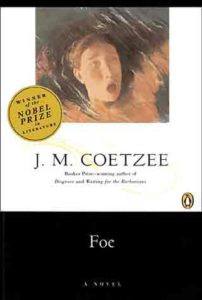 Nisha Jones Foe (1986) by J M Coetzee When thinking about an influential book published in the last twenty-five years, I tried not to think about J M Coetzee’s Foe but I couldn’t resist. One can trace Foe’s footprints through ideas about otherness, identity, origins, the narration of history and the preoccupation with language in the European theoretical world and beyond. A retelling of Daniel Defoe’s Robinson Crusoe, this time foregrounding a female castaway who is desperate to tell and sell the story of the tongueless, mutilated Friday with the help of the writer Mr Foe, Coetzee’s novel is both brilliant and terrifying. The subject of an unending catalogue of critical studies, I’m not sure whether Foe is just a book or a computational machine for the production of ethical dilemmas or a living being which feeds on our desire for resolution. It may sound like a monstrosity, but after the despair and frustration, Foe delivers the tenderest moment of peace: we are under water and the narrator has discovered Friday in the wreckage — ‘He turns and turns till he lies at full length, his face to my skin … I pass a fingernail across his teeth, trying to find a way in. His mouth opens. From inside him comes a slow stream … soft and cold, dark and unending, it beats against my eyelids, against the skin of my face’. Foe is more than a formidable novel, haunting, sublime and maddening.
Nisha Jones Foe (1986) by J M Coetzee When thinking about an influential book published in the last twenty-five years, I tried not to think about J M Coetzee’s Foe but I couldn’t resist. One can trace Foe’s footprints through ideas about otherness, identity, origins, the narration of history and the preoccupation with language in the European theoretical world and beyond. A retelling of Daniel Defoe’s Robinson Crusoe, this time foregrounding a female castaway who is desperate to tell and sell the story of the tongueless, mutilated Friday with the help of the writer Mr Foe, Coetzee’s novel is both brilliant and terrifying. The subject of an unending catalogue of critical studies, I’m not sure whether Foe is just a book or a computational machine for the production of ethical dilemmas or a living being which feeds on our desire for resolution. It may sound like a monstrosity, but after the despair and frustration, Foe delivers the tenderest moment of peace: we are under water and the narrator has discovered Friday in the wreckage — ‘He turns and turns till he lies at full length, his face to my skin … I pass a fingernail across his teeth, trying to find a way in. His mouth opens. From inside him comes a slow stream … soft and cold, dark and unending, it beats against my eyelids, against the skin of my face’. Foe is more than a formidable novel, haunting, sublime and maddening. 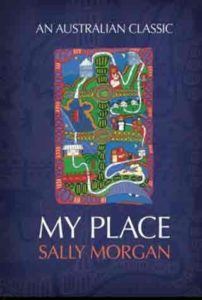 Stephanie Jones My Place (1987) by Sally Morgan Critically and popularly acclaimed, My Place is a classic of Australian and indigenous literature. It tells of the author’s discovery that she is Aboriginal, and seeks to understand why her grandmother kept this secret. It is autobiography and family history, but in its presentation of dialogue and character, it reads like a novel. Lending voice to three generations, it portrays the brutalities and shame that have defined the relationship between non-indigenous and indigenous Australians. The book has been criticised for being too accessible for allowing non-indigenous readers to feel a false intimacy with Aboriginal history and feeling that too easily enables a sense of redemption. But Morgan’s low-key writing is hugely powerful and this book continues to be an undeniably important personal account of the fragmentation of indigenous culture in colonial and postcolonial Australia.
Stephanie Jones My Place (1987) by Sally Morgan Critically and popularly acclaimed, My Place is a classic of Australian and indigenous literature. It tells of the author’s discovery that she is Aboriginal, and seeks to understand why her grandmother kept this secret. It is autobiography and family history, but in its presentation of dialogue and character, it reads like a novel. Lending voice to three generations, it portrays the brutalities and shame that have defined the relationship between non-indigenous and indigenous Australians. The book has been criticised for being too accessible for allowing non-indigenous readers to feel a false intimacy with Aboriginal history and feeling that too easily enables a sense of redemption. But Morgan’s low-key writing is hugely powerful and this book continues to be an undeniably important personal account of the fragmentation of indigenous culture in colonial and postcolonial Australia. 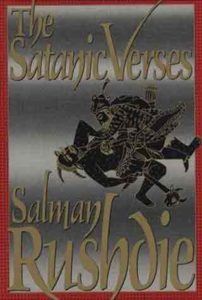 Tabish Khair The Satanic Verses (1988) by Salman Rushdie In the 1997 anthology of the ‘best’ of Indian writing that he co-edited, Rushdie briskly dismissed Indian writing in languages other than English. He did not advance the reasonable argument that it is impossible to know (let alone select between) so many languages, but the less plausible implication that English fiction was simply better. In choosing The Satanic Verses as one of the important books of the last twenty five years, I am consciously leaving out books in the three other languages (Hindi, Urdu and Danish) I have some knowledge of that could have competed for the honour. But to name them, in an English journal, appears to be little else than self-indulgence, for they would not be familiar to most readers of (even) Wasafiri regardless of how many other readers might swear by them. Hence, it has to be Rushdie’s The Satanic Verses (1988), a baggy monster of a novel, brilliant in some parts, self-absorbed and gimmicky in others, a book of ‘metamorphosis, hauntings, memories, hallucinations, revelations, advertising jingles and jokes’, as The Times has put it. It is a novel that could only have been written by someone from a Muslim background. It is also a novel that could only have been written by someone immersed in Western ways of seeing Islam. One can love it or hate it – personally I feel a position in between is the clearest indicator of sanity in today’s world – but one cannot ignore it. Perhaps one could have, if a certain Ayatollah Khomeini had not urged the ‘faithful’ to murder the author, if bans (the first in India) had not been imposed or contemplated, if mobs had not gone on the rampage and the author into hiding, if the ‘liberal West’ had not chosen (often) to use the conflict to consolidate its own need for a devilish Other, the previous incumbents (Soviets/communists) having recently disappeared with the Berlin Wall. How many novels become history? This one did. How many novels lead to deaths of supporters and detractors? This one did. And strangely enough, how many novels remain unfinished in the troubled impact of their texts and paratexts? This one remains thoroughly unfinished. The inability of critics on all sides to relate to The Satanic Verses is inadvertently revealed by all but a couple of texts written about it. This inability points to a future that is yet to emerge from the cloud of unanswered questions surrounding The Satanic Verses: is blasphemy a vehicle of truth; what relation does freedom of speech have to cultural dominance in an unequal world; how can we distinguish between a jealous God (or Allah) and an abstract principle which craves similar sacrifices; are Western nations, with their ‘cultural’ Christianities, really secular; does our capability to denounce pre-Capitalist structures of power rest on a matching blindness to the employment of Capitalist structures of power? There are many other questions, some raised by Rushdie, some against him. We will be lucky if they are answered in the next 25 years.
Tabish Khair The Satanic Verses (1988) by Salman Rushdie In the 1997 anthology of the ‘best’ of Indian writing that he co-edited, Rushdie briskly dismissed Indian writing in languages other than English. He did not advance the reasonable argument that it is impossible to know (let alone select between) so many languages, but the less plausible implication that English fiction was simply better. In choosing The Satanic Verses as one of the important books of the last twenty five years, I am consciously leaving out books in the three other languages (Hindi, Urdu and Danish) I have some knowledge of that could have competed for the honour. But to name them, in an English journal, appears to be little else than self-indulgence, for they would not be familiar to most readers of (even) Wasafiri regardless of how many other readers might swear by them. Hence, it has to be Rushdie’s The Satanic Verses (1988), a baggy monster of a novel, brilliant in some parts, self-absorbed and gimmicky in others, a book of ‘metamorphosis, hauntings, memories, hallucinations, revelations, advertising jingles and jokes’, as The Times has put it. It is a novel that could only have been written by someone from a Muslim background. It is also a novel that could only have been written by someone immersed in Western ways of seeing Islam. One can love it or hate it – personally I feel a position in between is the clearest indicator of sanity in today’s world – but one cannot ignore it. Perhaps one could have, if a certain Ayatollah Khomeini had not urged the ‘faithful’ to murder the author, if bans (the first in India) had not been imposed or contemplated, if mobs had not gone on the rampage and the author into hiding, if the ‘liberal West’ had not chosen (often) to use the conflict to consolidate its own need for a devilish Other, the previous incumbents (Soviets/communists) having recently disappeared with the Berlin Wall. How many novels become history? This one did. How many novels lead to deaths of supporters and detractors? This one did. And strangely enough, how many novels remain unfinished in the troubled impact of their texts and paratexts? This one remains thoroughly unfinished. The inability of critics on all sides to relate to The Satanic Verses is inadvertently revealed by all but a couple of texts written about it. This inability points to a future that is yet to emerge from the cloud of unanswered questions surrounding The Satanic Verses: is blasphemy a vehicle of truth; what relation does freedom of speech have to cultural dominance in an unequal world; how can we distinguish between a jealous God (or Allah) and an abstract principle which craves similar sacrifices; are Western nations, with their ‘cultural’ Christianities, really secular; does our capability to denounce pre-Capitalist structures of power rest on a matching blindness to the employment of Capitalist structures of power? There are many other questions, some raised by Rushdie, some against him. We will be lucky if they are answered in the next 25 years. 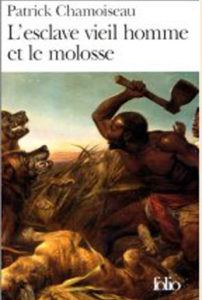 Jean Khalfa La Douleur (1985) by Marguerite Duras L'Esclave vieil homme et le molosse (1997) by Patrick Chamoiseau I can only compare books read over such a period on two grounds: a repeated desire to reread and the pleasure still felt. In the first perspective two stand out, Marguerite Duras' La Douleur (1985) and Patrick Chamoiseau's L'Esclave vieil homme et le molosse (1997). In the second, Claude Lanzmann's Patagonian Hare (Le Lièvre de Patagonie, 2009) wins without contest. It charts an extraordinary life: a high school resistance and a clandestine love in post-war North Korea, where he sneaks back 40 years later, imagining a remarkable film; years shared with de Beauvoir, his work with Sartre, the Algerian war, his friendship with Fanon and the contradictions of national struggles, the first text on the Dalaï Lama’s flight to India, meetings with Castro, Nasser... Then twelve feverish years shooting and editing a monumental film, Shoah. This is the history of half a century by someone who has no patience for unfoldings, sees events as act and experience, and film and writing as the means to relate to the present in its immediacy. It takes the sudden leap of the hare in the title for him to feel one with Patagonia, beyond all the knowledge accumulated. This book does that to the reader.
Jean Khalfa La Douleur (1985) by Marguerite Duras L'Esclave vieil homme et le molosse (1997) by Patrick Chamoiseau I can only compare books read over such a period on two grounds: a repeated desire to reread and the pleasure still felt. In the first perspective two stand out, Marguerite Duras' La Douleur (1985) and Patrick Chamoiseau's L'Esclave vieil homme et le molosse (1997). In the second, Claude Lanzmann's Patagonian Hare (Le Lièvre de Patagonie, 2009) wins without contest. It charts an extraordinary life: a high school resistance and a clandestine love in post-war North Korea, where he sneaks back 40 years later, imagining a remarkable film; years shared with de Beauvoir, his work with Sartre, the Algerian war, his friendship with Fanon and the contradictions of national struggles, the first text on the Dalaï Lama’s flight to India, meetings with Castro, Nasser... Then twelve feverish years shooting and editing a monumental film, Shoah. This is the history of half a century by someone who has no patience for unfoldings, sees events as act and experience, and film and writing as the means to relate to the present in its immediacy. It takes the sudden leap of the hare in the title for him to feel one with Patagonia, beyond all the knowledge accumulated. This book does that to the reader. 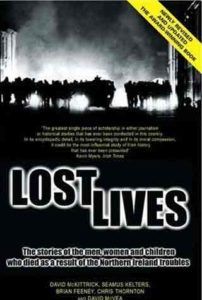 Gary Mckeone Lost Lives –The Stories of the men, women and children who died as a result of the Northern Ireland troubles (1999) edited by David McKittrick, Seamus Kelters, Brian Feeny and Chris Thornton ‘Everywhere, wrenching grief, everywhere, terror and a thousand shapes of death.’ The Aeneid, Book 2, 460-463, trans. Robert Fagles There is a now famous photograph of Martin McGuinness and Dr Ian Paisley, taken in Stormont Castle not long after the signing of the Good Friday Agreement. The former enemies are sitting side by side, their faces creased with laughter. The Northern Ireland ‘troubles’ are over. Sorted. Solved. It is peace in our time. Many poets, playwrights, novelists and artists have grappled, often brilliantly, with the troubles in their art. Think of Brian Friel’s play Translations or the poetry of Seamus Heaney and Michael Longley. But a book that stands out for me is by none of these. It is a simple, heartbreaking record — a litany of loss. It takes no sides, makes no judgements, offers no excuses or explanations. It neither condemns nor condones. Lost Lives, edited by David McKittrick, Seamus Kelters, Brian Feeny and Chris Thornton was published in 1999. It lists chronologically some 3,600 killings, all carried out in the name of one cause or other. Each entry has a number, a date, a name, a location and a brief description of what happened. There are no metaphors, no linguistic flourishes. The language is plain, matter-of-fact and all the more harrowing because of it. To read it is to confront horror, savagery, grief and courage. It is both a testament and a warning. Historians will eventually corral the whole sorry episode of the troubles into a bloodless narrative. Lost Lives will stand as a memorial to all those men, women and children, most of whose names will not feature in the history books. It bears witness to what happens when a community resorts to violence to resolve differences. It is nothing to laugh about. Two influential writers over the next 25 years - Guadalupe Nettel (Mexico) - Deirdre Madden (Ireland).
Gary Mckeone Lost Lives –The Stories of the men, women and children who died as a result of the Northern Ireland troubles (1999) edited by David McKittrick, Seamus Kelters, Brian Feeny and Chris Thornton ‘Everywhere, wrenching grief, everywhere, terror and a thousand shapes of death.’ The Aeneid, Book 2, 460-463, trans. Robert Fagles There is a now famous photograph of Martin McGuinness and Dr Ian Paisley, taken in Stormont Castle not long after the signing of the Good Friday Agreement. The former enemies are sitting side by side, their faces creased with laughter. The Northern Ireland ‘troubles’ are over. Sorted. Solved. It is peace in our time. Many poets, playwrights, novelists and artists have grappled, often brilliantly, with the troubles in their art. Think of Brian Friel’s play Translations or the poetry of Seamus Heaney and Michael Longley. But a book that stands out for me is by none of these. It is a simple, heartbreaking record — a litany of loss. It takes no sides, makes no judgements, offers no excuses or explanations. It neither condemns nor condones. Lost Lives, edited by David McKittrick, Seamus Kelters, Brian Feeny and Chris Thornton was published in 1999. It lists chronologically some 3,600 killings, all carried out in the name of one cause or other. Each entry has a number, a date, a name, a location and a brief description of what happened. There are no metaphors, no linguistic flourishes. The language is plain, matter-of-fact and all the more harrowing because of it. To read it is to confront horror, savagery, grief and courage. It is both a testament and a warning. Historians will eventually corral the whole sorry episode of the troubles into a bloodless narrative. Lost Lives will stand as a memorial to all those men, women and children, most of whose names will not feature in the history books. It bears witness to what happens when a community resorts to violence to resolve differences. It is nothing to laugh about. Two influential writers over the next 25 years - Guadalupe Nettel (Mexico) - Deirdre Madden (Ireland). 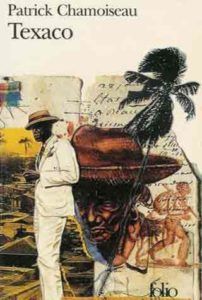 Nana Yaa Mensah Texaco (1992) by Patrick Chamoiseau It is always a delight to read a writer at the peak of his powers. When this novel appeared, we needed reminding how elastic storytelling can be, how plastic language can be, too. Patrick Chamoiseau hoarded away his many talents in here. The stories of Marie-Sophie Laborieux, Iréné, Esternome, Sonore, Ninon, Aimé Césaire, Ti-Cirique, Marie-Clémence, ‘the Christ’, even the békés and the blancs-france, and the host of other waifs, wraiths and bardic figures crammed into l’en Ville, flow so smoothly that even the tallest of these tales seem normal, mingling melodiously with a multiple History: the modern Caribbean, the enslaved past, ‘metropolitan’ France, the ancestral myth of Arawaks and Mentôs. In one guise, Texaco is chiefly a treasury of events, images, linguistic games. In another, it blows open the doors of the academy and breathes out authenticity spiced with the honest scent of sweat — the people’s sweat. Its style continues to clear cobwebs from francophone writing. The creole hybridity of this novel is to French letters what Tutuola’s Yorubanglish was to writing in English … but more elegantly so. It cleared a space for the likes of Alain Mabanckou and the mature Thierno Monénembo. It fully deserved to win the Goncourt. And it still cries out for a translation equal to the rococo original.
Nana Yaa Mensah Texaco (1992) by Patrick Chamoiseau It is always a delight to read a writer at the peak of his powers. When this novel appeared, we needed reminding how elastic storytelling can be, how plastic language can be, too. Patrick Chamoiseau hoarded away his many talents in here. The stories of Marie-Sophie Laborieux, Iréné, Esternome, Sonore, Ninon, Aimé Césaire, Ti-Cirique, Marie-Clémence, ‘the Christ’, even the békés and the blancs-france, and the host of other waifs, wraiths and bardic figures crammed into l’en Ville, flow so smoothly that even the tallest of these tales seem normal, mingling melodiously with a multiple History: the modern Caribbean, the enslaved past, ‘metropolitan’ France, the ancestral myth of Arawaks and Mentôs. In one guise, Texaco is chiefly a treasury of events, images, linguistic games. In another, it blows open the doors of the academy and breathes out authenticity spiced with the honest scent of sweat — the people’s sweat. Its style continues to clear cobwebs from francophone writing. The creole hybridity of this novel is to French letters what Tutuola’s Yorubanglish was to writing in English … but more elegantly so. It cleared a space for the likes of Alain Mabanckou and the mature Thierno Monénembo. It fully deserved to win the Goncourt. And it still cries out for a translation equal to the rococo original. 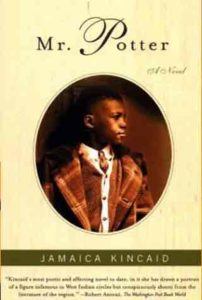 Susheila Nasta Mr Potter (2002) by Jamaica Kincaid Sometimes what appear to be small books can make a big impact. I have been impressed by Kincaid’s evolving series of intimate fictional family portraits since the appearance of Annie John in 1985. Most commonly set in Antigua, a small island in the Caribbean, these life-writing narratives (often, prose poems), cross the genres of fiction and autobiography as a means of giving voice to unwritten silenced lives. Mr Potter, Kincaid’s most recent addition to this ever-expanding album, is the culmination of an aesthetic vision that determinedly explores the contradictory limits of language to frame a world previously voiceless, absent in history and without definition. Sketching the life of an unknown and absent father, an illiterate black taxi driver, Kincaid constructs a haunting poetic landscape defined by loss but driven by the desire to literally imagine him into existence. Her incantatory, almost mesmeric style immediately draws the reader into Mr Potter’s small world whilst simultaneously interrogating Kincaid’s own diasporic location as daughter-writer-New York cosmopolitan. Major philosophical questions are raised as Kincaid characteristically struggles for answers: ‘in some dim and distant way we feel that we are nothing’, but ‘how certain we are that we are everything’. Whilst Mr Potter lives in a barren universe devoid of love, justice, meaning, it is linked throughout to Kincaid’s exploration of their mutual illegitimacy. Both of them lack signatures on their birth certificates which have lines drawn through them where names ought to appear. In inventing Mr Potter, Kincaid continues to rewrite herself: ‘ … because I learned how to read and how to write, only so is Mr Potter’s life known, his smallness becomes large, his anonymity ... stripped away, his silence broken’. Perhaps, most significantly, the book asks searching contemporary questions that concern us all.
Susheila Nasta Mr Potter (2002) by Jamaica Kincaid Sometimes what appear to be small books can make a big impact. I have been impressed by Kincaid’s evolving series of intimate fictional family portraits since the appearance of Annie John in 1985. Most commonly set in Antigua, a small island in the Caribbean, these life-writing narratives (often, prose poems), cross the genres of fiction and autobiography as a means of giving voice to unwritten silenced lives. Mr Potter, Kincaid’s most recent addition to this ever-expanding album, is the culmination of an aesthetic vision that determinedly explores the contradictory limits of language to frame a world previously voiceless, absent in history and without definition. Sketching the life of an unknown and absent father, an illiterate black taxi driver, Kincaid constructs a haunting poetic landscape defined by loss but driven by the desire to literally imagine him into existence. Her incantatory, almost mesmeric style immediately draws the reader into Mr Potter’s small world whilst simultaneously interrogating Kincaid’s own diasporic location as daughter-writer-New York cosmopolitan. Major philosophical questions are raised as Kincaid characteristically struggles for answers: ‘in some dim and distant way we feel that we are nothing’, but ‘how certain we are that we are everything’. Whilst Mr Potter lives in a barren universe devoid of love, justice, meaning, it is linked throughout to Kincaid’s exploration of their mutual illegitimacy. Both of them lack signatures on their birth certificates which have lines drawn through them where names ought to appear. In inventing Mr Potter, Kincaid continues to rewrite herself: ‘ … because I learned how to read and how to write, only so is Mr Potter’s life known, his smallness becomes large, his anonymity ... stripped away, his silence broken’. Perhaps, most significantly, the book asks searching contemporary questions that concern us all. 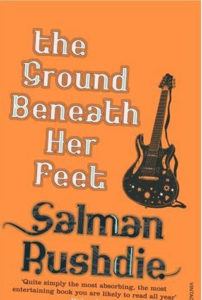 Alaistair Niven The Ground Beneath Her Feet (2000) by Salman Rushdie Midnight’s Children does not qualify, having been published twenty eight years ago. The Satanic Verses caused more trouble than almost anything published since Darwin, but is it ‘the best’, even of Rushdie? There is no getting away from the fact, however, that Salman Rushdie’s name will resonate whenever the period in which we live is talked about in decades to come. In his personal story converge so many of the tensions, diversity and cultural conflict of our time. As a writer he helped to restore to modern fiction the grand aspirations, the sheer sense of scale, which by the early 1980s seemed sometimes to be draining out of it. The sweep, ebullience, experiment, wit, humanity and bravado of Rushdie’s work contributed in a major way to the re-invigoration of the novel in the last twenty five years. The Ground Beneath Her Feet has the capaciousness of a great book, besides which its world of pop culture and celebrity catches the awful tawdriness sprouting from the ground beneath our feet. Under-estimated when it came out in 1999, it holds its own among the best of its age.
Alaistair Niven The Ground Beneath Her Feet (2000) by Salman Rushdie Midnight’s Children does not qualify, having been published twenty eight years ago. The Satanic Verses caused more trouble than almost anything published since Darwin, but is it ‘the best’, even of Rushdie? There is no getting away from the fact, however, that Salman Rushdie’s name will resonate whenever the period in which we live is talked about in decades to come. In his personal story converge so many of the tensions, diversity and cultural conflict of our time. As a writer he helped to restore to modern fiction the grand aspirations, the sheer sense of scale, which by the early 1980s seemed sometimes to be draining out of it. The sweep, ebullience, experiment, wit, humanity and bravado of Rushdie’s work contributed in a major way to the re-invigoration of the novel in the last twenty five years. The Ground Beneath Her Feet has the capaciousness of a great book, besides which its world of pop culture and celebrity catches the awful tawdriness sprouting from the ground beneath our feet. Under-estimated when it came out in 1999, it holds its own among the best of its age. 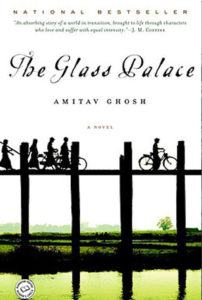 Teresa Palmiero The Glass Palace by Amitav Ghosh Amitav Ghosh’s The Glass Palace is one of those huge, epic novels, which at moments leaves you cowering at the scale of the events unfolding before you to moments of wonderful, immediate detail. Set in Burma and India during English Colonial rule, The Glass Palace charts the emotional and physical journey of the Burmese Royal family’s refuge in India. Although this novel has been criticised by some to be too sprawling and at times too heavily laden with intricate descriptions of incidental things such as the workings of a car’s engine, I was drawn into a world that I could see, touch, taste and feel with immediacy. The novel introduces the reader to a myriad of perspectives on colonial rule, which includes the exploitation of the teak forests in Burma. It is this forceful representation of the impact of colonialism interwoven with multiple strands of narrative that made The Glass Palace one of the most significant books I have read.
Teresa Palmiero The Glass Palace by Amitav Ghosh Amitav Ghosh’s The Glass Palace is one of those huge, epic novels, which at moments leaves you cowering at the scale of the events unfolding before you to moments of wonderful, immediate detail. Set in Burma and India during English Colonial rule, The Glass Palace charts the emotional and physical journey of the Burmese Royal family’s refuge in India. Although this novel has been criticised by some to be too sprawling and at times too heavily laden with intricate descriptions of incidental things such as the workings of a car’s engine, I was drawn into a world that I could see, touch, taste and feel with immediacy. The novel introduces the reader to a myriad of perspectives on colonial rule, which includes the exploitation of the teak forests in Burma. It is this forceful representation of the impact of colonialism interwoven with multiple strands of narrative that made The Glass Palace one of the most significant books I have read. 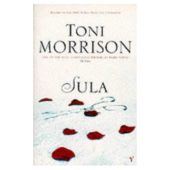 Roger Robinson Sula (first published 1973) by Toni Morrison I came late to Toni Morrison and picked up Sula after fellow poet, Peter Kahn said it was his favourite book and he could not believe that I had not read it. When I got home, to my surprise, it was already in my library. It was my wife's copy and she had read it when she was a student. It is the only book I have ever read, from beginning to end, in one day. It is the first novel that I saw my aunts, mum and sisters in. Not in a metaphorical sense but I actually saw them. Sula was my Aunty Lynette extracting choice from choicelessness. Nel was my Aunty Monica, a good woman. It is a novel full of death but not in a morbid way but death punctuating the celebration of life and living. There is birth death, sex and food. Everything I ever wanted to find in a novel.
Roger Robinson Sula (first published 1973) by Toni Morrison I came late to Toni Morrison and picked up Sula after fellow poet, Peter Kahn said it was his favourite book and he could not believe that I had not read it. When I got home, to my surprise, it was already in my library. It was my wife's copy and she had read it when she was a student. It is the only book I have ever read, from beginning to end, in one day. It is the first novel that I saw my aunts, mum and sisters in. Not in a metaphorical sense but I actually saw them. Sula was my Aunty Lynette extracting choice from choicelessness. Nel was my Aunty Monica, a good woman. It is a novel full of death but not in a morbid way but death punctuating the celebration of life and living. There is birth death, sex and food. Everything I ever wanted to find in a novel. 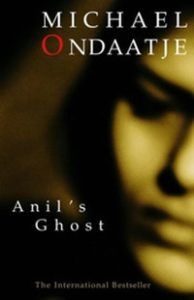 Minoli Salgado Anil’s Ghost (2000) by Michael Ondaatje Anil’s Ghost is that rare and vital find — a quiet and utterly human book on the violent effects of war. There are no easy judgements or bold political gestures here, Ondaatje’s focus remains disarmingly direct, attentive to the most tenuous connections between people and events. In the process the occluded emotional landscape of war is revealed – fear, mistrust, the loss of faith and bearings – as well as the necessity for finding a language to translate the dislocations of experience. This novel is about Sri Lanka – a country that for over twenty five years has endured a war as brutal as it is hidden – but also about so much more than Sri Lanka. It is a novel that reminds us that, perhaps, the only way to end political violence is by stepping outside the language that accommodates it. New writer for the next 25 years: Michelle de Kretser.
Minoli Salgado Anil’s Ghost (2000) by Michael Ondaatje Anil’s Ghost is that rare and vital find — a quiet and utterly human book on the violent effects of war. There are no easy judgements or bold political gestures here, Ondaatje’s focus remains disarmingly direct, attentive to the most tenuous connections between people and events. In the process the occluded emotional landscape of war is revealed – fear, mistrust, the loss of faith and bearings – as well as the necessity for finding a language to translate the dislocations of experience. This novel is about Sri Lanka – a country that for over twenty five years has endured a war as brutal as it is hidden – but also about so much more than Sri Lanka. It is a novel that reminds us that, perhaps, the only way to end political violence is by stepping outside the language that accommodates it. New writer for the next 25 years: Michelle de Kretser. 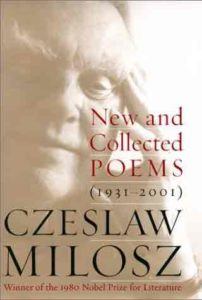 Fiona Sampson New and Collected Poems, 1931-2001 (2001) by Czeslaw Milosz Czeslaw Milosz’s New and Collected Poems, 1931-2001 is important not least as an extended act of poetic witness. Those astonishing dates, and the fact that the poet was a Lithuanian Pole, a resistance fighter who survived the Warsaw Uprising to live more than half his life in exile, mean it is no surprise that Milosz turns the European tradition upon itself, as if to ask what becomes of fine sentiments under pressure. Nor that in 1957’sA Treatise on Poetry, Poland is poetry. Above all, though, it is poetry whose sensuous beauty, vivid symbols and emotional intelligence suggests the potential in messy humanity. Writer for the future The brilliant Palestinian American doctor-poet Fady Judah (b.1971) is published in the UK as the supple, sensitive translator of Mahmoud Darwish’s The Butterfly’s Burden, awarded the Banipal Translation Prize and short-listed for the PEN Translation Prize. But in the States, Joudah’s first book The Earth in the Attic won the 2007 Yale Younger Poet Series. His sophisticated but clear-as-a-bell verse draws on both his cultures and their poetries. Reading him you get a sense of enormous capacity and range: of thoughtfulness matched by political and human engagement. He has the wherewithal to produce extraordinary work in the decades to come.
Fiona Sampson New and Collected Poems, 1931-2001 (2001) by Czeslaw Milosz Czeslaw Milosz’s New and Collected Poems, 1931-2001 is important not least as an extended act of poetic witness. Those astonishing dates, and the fact that the poet was a Lithuanian Pole, a resistance fighter who survived the Warsaw Uprising to live more than half his life in exile, mean it is no surprise that Milosz turns the European tradition upon itself, as if to ask what becomes of fine sentiments under pressure. Nor that in 1957’sA Treatise on Poetry, Poland is poetry. Above all, though, it is poetry whose sensuous beauty, vivid symbols and emotional intelligence suggests the potential in messy humanity. Writer for the future The brilliant Palestinian American doctor-poet Fady Judah (b.1971) is published in the UK as the supple, sensitive translator of Mahmoud Darwish’s The Butterfly’s Burden, awarded the Banipal Translation Prize and short-listed for the PEN Translation Prize. But in the States, Joudah’s first book The Earth in the Attic won the 2007 Yale Younger Poet Series. His sophisticated but clear-as-a-bell verse draws on both his cultures and their poetries. Reading him you get a sense of enormous capacity and range: of thoughtfulness matched by political and human engagement. He has the wherewithal to produce extraordinary work in the decades to come. 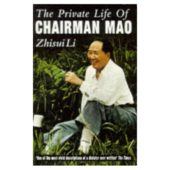 Sukhdev Sandhu The Private Life of Chairman Mao (1994) by Dr Li Zhisui The last twenty five years have not borne witness, as Francis Fukuyama predicted it would, to the end of history, but rather to its beginning. What has been unfolding in China has been a breathtakingly accelerated version of the Industrial Revolution, a Great Leap Forward altogether more momentous than anything effected by Mao Zedong. It was his death though that triggered these transformations. And it is the death of his mystique that is announced on every page of this magnificent, agonised biography by his personal physician who offers insights, unparalleled in their intimacy, about the Great Helmsman’s whoring, hypochondria and megalomania. A map of a corrupted body, to say nothing of a corrupted body politic, it remains, even in an era overflowing with genocidal tyrants and dictators, a remarkable book, one whose reverberations will continue to be felt for the next twenty five years too. The next 25 years? I'd say John Berger; the magnitude of his achievements will be belatedly acknowledged, his work canonised, his politics misrepresented. He will be seen as the pre-eminent global (pre-'globalisation'!) writer of the post-1945 period.
Sukhdev Sandhu The Private Life of Chairman Mao (1994) by Dr Li Zhisui The last twenty five years have not borne witness, as Francis Fukuyama predicted it would, to the end of history, but rather to its beginning. What has been unfolding in China has been a breathtakingly accelerated version of the Industrial Revolution, a Great Leap Forward altogether more momentous than anything effected by Mao Zedong. It was his death though that triggered these transformations. And it is the death of his mystique that is announced on every page of this magnificent, agonised biography by his personal physician who offers insights, unparalleled in their intimacy, about the Great Helmsman’s whoring, hypochondria and megalomania. A map of a corrupted body, to say nothing of a corrupted body politic, it remains, even in an era overflowing with genocidal tyrants and dictators, a remarkable book, one whose reverberations will continue to be felt for the next twenty five years too. The next 25 years? I'd say John Berger; the magnitude of his achievements will be belatedly acknowledged, his work canonised, his politics misrepresented. He will be seen as the pre-eminent global (pre-'globalisation'!) writer of the post-1945 period.  Hirsh Sawhney River of Fire (1998) by Qurratulain Hyder My first reading of Qurratulain Hyder’s River of Fire completely blew me away. Published in English during the 1990s, the book was originally printed in Urdu in 1959. Despite being released forty years ago it, nonetheless, enchanted my MTV generation sensibilities. Here was a woman who wrote about migration without romanticising it. She conjured up artistic aspiration and liberal ideals and then mocked them both. Most importantly, her sweeping version of the Indian subcontinent’s history was erudite and radical and could only displease the powers that be. In times like ours, when stories about South Asia, Islam and women are clouded by a barrage of simplistic media images, readers can be educated and entertained by this iconic, edgy masterpiece.
Hirsh Sawhney River of Fire (1998) by Qurratulain Hyder My first reading of Qurratulain Hyder’s River of Fire completely blew me away. Published in English during the 1990s, the book was originally printed in Urdu in 1959. Despite being released forty years ago it, nonetheless, enchanted my MTV generation sensibilities. Here was a woman who wrote about migration without romanticising it. She conjured up artistic aspiration and liberal ideals and then mocked them both. Most importantly, her sweeping version of the Indian subcontinent’s history was erudite and radical and could only displease the powers that be. In times like ours, when stories about South Asia, Islam and women are clouded by a barrage of simplistic media images, readers can be educated and entertained by this iconic, edgy masterpiece.
